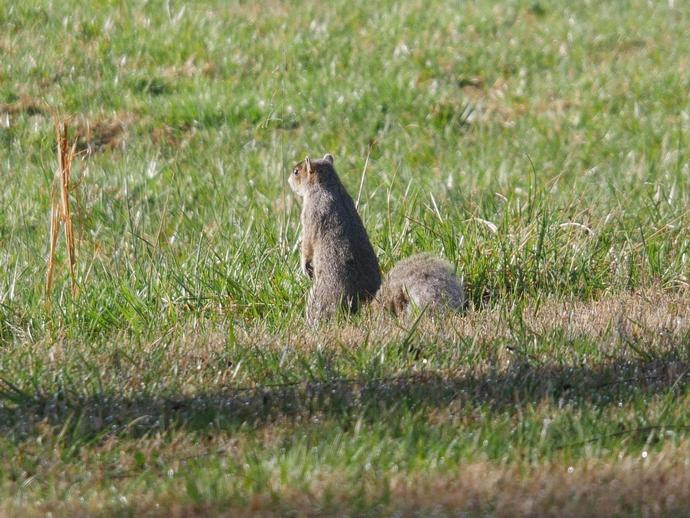September 10, 2020
#BenInNature is on vacation! While he's out, we're going to look back at the first daily nature updates from way back in March! The following post was originally published March 22, 2020.
A fox squirrel stares into the distance, quietly contemplating the big questions: do I live to gather walnuts, or do I gather walnuts to live? The fox squirrel (Sciurus niger) is the largest species of tree squirrel in North America. While they can look similar to gray squirrels, they are slightly larger and have longer tails. They also exhibit a wider variety of coat colors, and they often have a white spot on the tips of their noses. While I've been seeing fox squirrels in Patrick County for years, they have only recently started cropping up in Henry County; if you have a keen eye, you might just spot one or two in the vicinity of Patrick Henry Community College. They are most often found in open stands of forest with little undergrowth, especially if interspersed with open agricultural land. Virginia Museum of Natural History Curator of Mammalogy Dr. Nancy Moncrief has done a great deal of work with both fox squirrels and gray squirrels. Most recently, Dr. Moncrief and several colleagues wrote a paper on the origins of melanism (the overdevelopment of dark pigment in skin/hair, which is the opposite of albinism) in fox squirrels and gray squirrels. In the process, they found the first genetic evidence that these two species hybridized in the past. What happens in the woods, stays in the woods. #BenInNature
About #BenInNature
Social distancing can be difficult, but it presents a great opportunity to become reacquainted with nature. While he is working from home, Administrator of Science Ben Williams is venturing outdoors each day to record a snapshot of the unique sights that can be found in the natural world.

 Hours & Admissions
Hours & Admissions Directions
Directions

